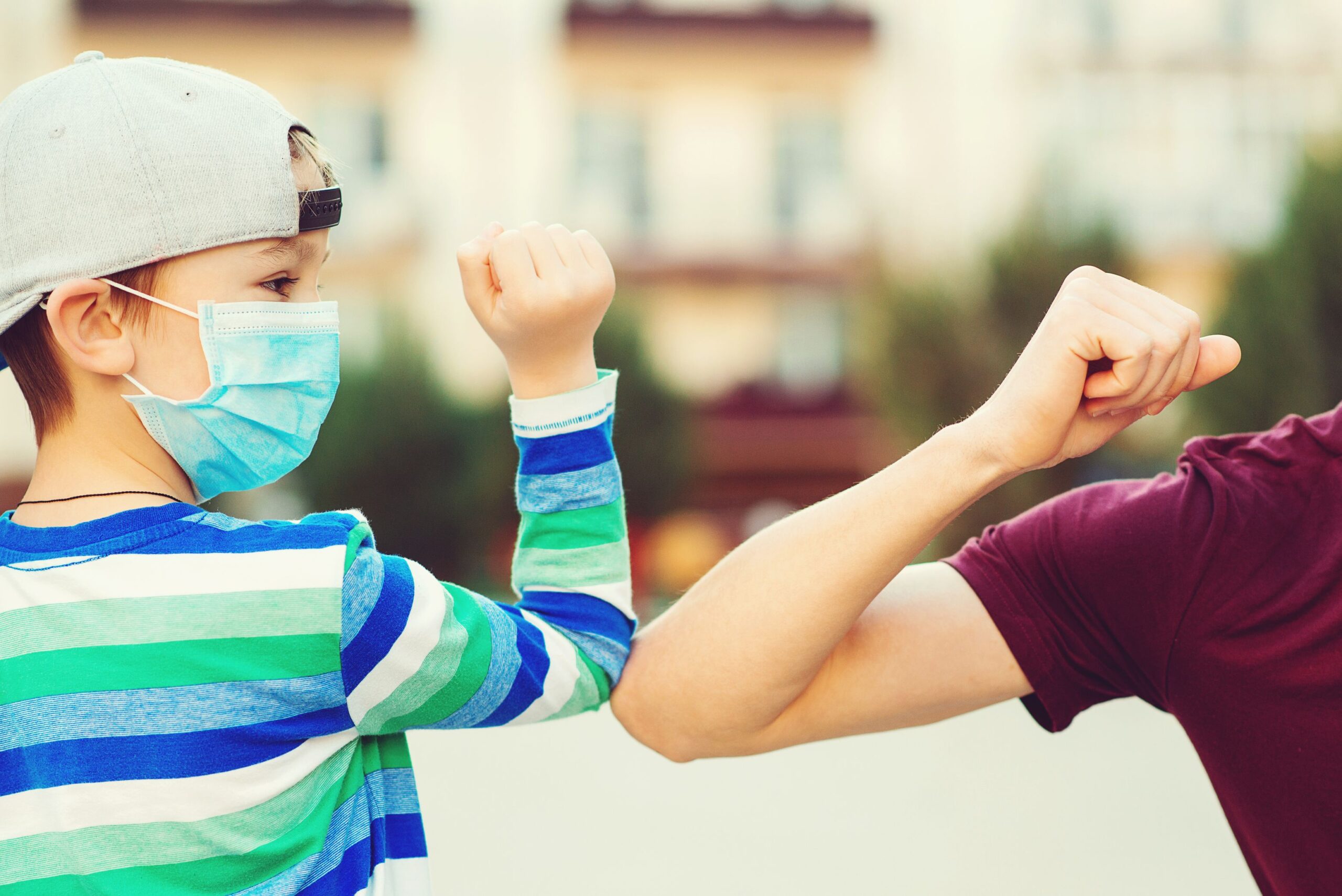
11 Jun Self-Control & Social Distancing: A Safe & Proactive Approach
Now more than ever, practicing self-control is essential to preventing the spread of COVID-19 in the community of Sugar Land, TX, and across the globe. For many families, especially those with young children, teaching self-control in the era of social distancing has its hurdles and challenges:
How do you convey to a young child why they can no longer work closely with their friends, or climb on their favorite jungle gym at the park?
What do you do when your young child struggles to keep their distance and gets frustrated when there are limitations imposed on their freedom?
Whether in normal times or the worst of times, self-control is part of the Montessori philosophy, and it’s a life skill that can teach children how to better interact with the world around them.
At Sugar Mill Montessori, we’re here to promote self-control in and out of the classroom, and we’ve provided the following information to help parents and children practice self-control at home, today and in the future.
What Is Self-Control?
Teaching self-control does more than prevent temper tantrums, squabbles over toys, and physical fights with siblings. It’s a life skill that promotes cooperation, redirects bad behavior, keeps impulsivity in check, and encourages healthy emotional and physical reactions.
From a Montessori perspective, self-control focuses on developing a child’s will so that it becomes a natural part of their personality, and not something that is forced. Montessori philosophy also believes in developing a child’s ability to think for themselves and still act respectfully and responsibly.
Self-control in times of social distancing can be confusing for young children, especially for social butterflies and active, on-the-go children. Luckily, there are ways you can show your child how to practice self-control and social distancing, and develop their willingness and independence in the process.
Build Trust & Model Self-Control
Trust lays out the groundwork for self-control. It develops a child’s willingness to behave and react in accordance and acceptance of their environment. Without trust, a child can begin to self-seek and think impulsively.
Building trust starts with consistency. Children learn to trust when their parents and caregivers follow through with what they say.
The trending #fruitsnackchallenge on Instagram is a great example of this. The social experiment has demonstrated how some young children can exert willpower when presented with a sweet snack and told to wait, while other children are quick to snag up the treat before their parent returns to the room. Of course, there are many variables that come into play, but ultimately, children can learn self-control when they can expect consistent results.
Once a child can associate an expected outcome with a behavior, the child can trust the situation and others involved.
Let’s say you’re attempting to teach your child how to give up their favorite toy so a younger sibling can play with it. Before a squabble between the siblings begins, you can reassure the older child that they will get a chance to play with the toy again. By following through with that reassurance every time, the older child will eventually develop a natural willingness to share.
Modeling self-control as a parent is also a good way to build trust. A parent may be able to soothe their child’s anxieties or respond to bad behavior calmly and without losing their temper. But if that parent can’t demonstrate calmness and level-headedness in reaction to things that make them angry or fearful, the mixed messages can confuse the child and muddle their trust in you and their environment.
Offer Your Help & Promote Togetherness
Learning self-control has always had its challenges and frustrations for kids. Children who are still developing their self-controlled will today, or those who are too young to understand the repercussions of COVID-19, may be more inclined to disobey safe practices or get frustrated by the present situation.
Some children can struggle with the concept of frequent hand washing. Parents can remind their children that it’s important to wash their hands once indoors. If the child continues to refuse, parents can model the behavior by washing their hands.
This type of response can be relatable for the child. It can also demonstrate togetherness and teamwork, which can help a child develop their understanding of themselves in their environment and how they can still behave and think freely within their environment.
Anytime your child becomes frustrated, disobedient, or perplexed by a new situation, offer your help. Your consistency with this will develop compliance, but also your child’s own sense of community and a willingness to help others. Also make sure you are mixing up your lessons in self-control by taking your family out of the quarantined environment and engaging in outdoor activities together.
Have Fun Teaching Self-Control in Our New “Normal”
Even with parts of Sugar Land, TX, reopening, many families will continue staying home and practicing social distancing in the weeks ahead. It’s important to meet our children where they are and remember that, as kids, they still want to have fun under the present circumstances.
There are lots of engaging activities that foster independence and self-control. From having an after-dinner cleanup routine that involves the whole family to playing ‘Simon Says’, you can encourage your child to have fun and participate even in quarantine.
With our school open, Sugar Mill Montessori is taking all necessary precautions to keep our students and their families safe. We’ll also be practicing self-control in our classrooms and day-to-day activities, avoiding playground equipment, and doing what we can to keep your child engaged and safe. For more information or ideas on how to keep your child engaged out of the classroom, reach out to us today.



Sorry, the comment form is closed at this time.